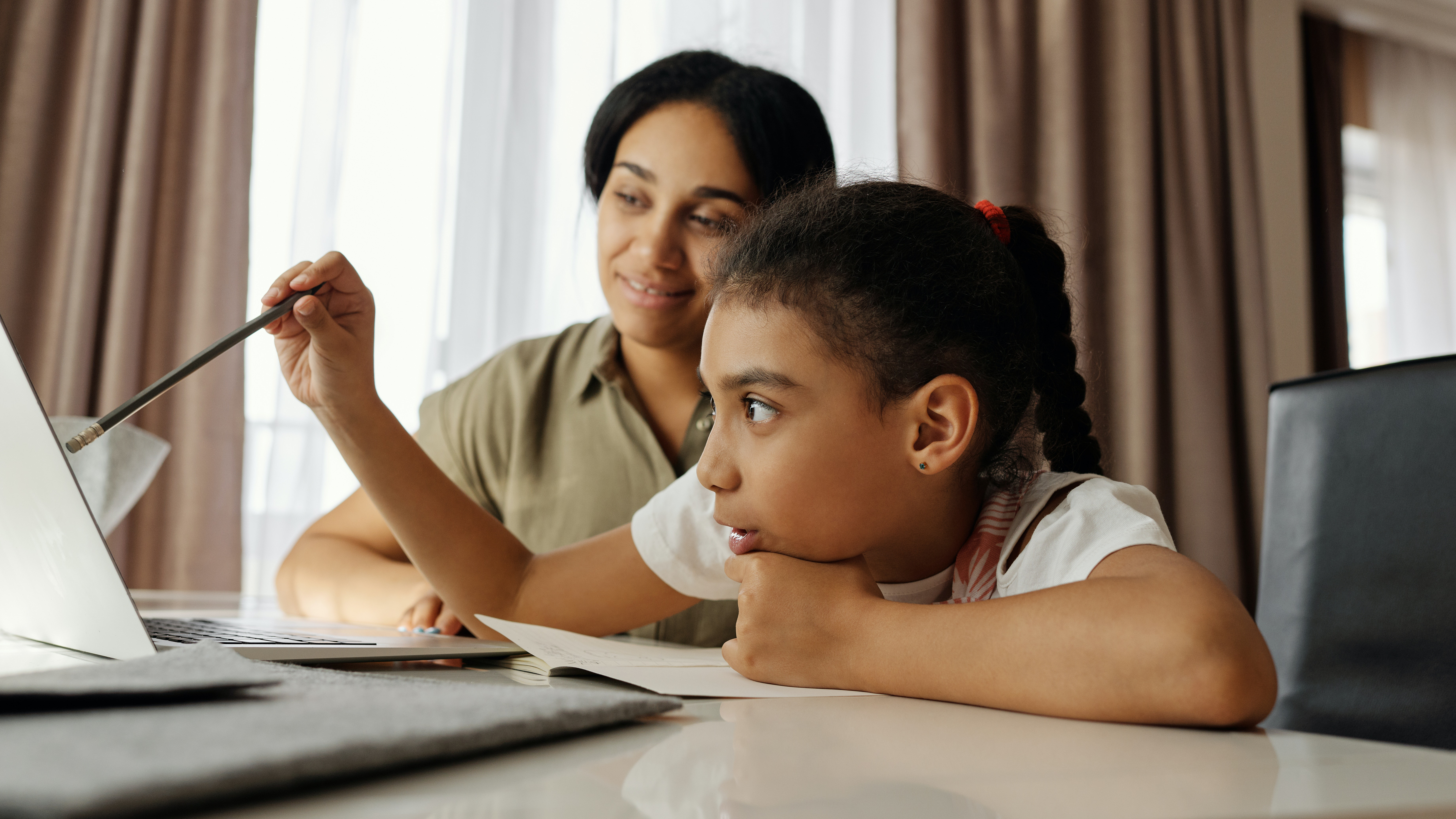Although small in stature, a lot like adults, children can experience big feelings. For children, surges of emotion can sometimes be overwhelming—and not just for them but for the people around them. It’s here that understanding emotions can have a great impact, especially when it comes to emotional regulation.
As a parent, you play a central role in your child’s emotional development. You’re often their first point of call when trying to navigate their emotions. By developing the skills to identify, understand and regulate emotions, your child can start to feel more resilient to stress, more confident in their social connections and able to better manage and regulate emotional responses.
The importance of starting young
Emotionally aware children are more socially adaptable, resilient1 and, according to some studies—happier 2.
Developing the ability to recognise, understand and regulate emotions from early childhood is key to building stronger emotional regulation in children. It also helps support your child’s mental health into adolescence and beyond. Kids and teens who are able to harness these skills early can:
- React more calmly and appropriately to challenging situations
- Return to a state of calm more quickly after experiencing strong emotions
- Regulate impulsive behaviour
- Avoid harmful and reactive behaviours, language and reactions
- Be more empathetic in their interactions with others3
The important role of the parent
As a parent, you wear many hats in caring for and nurturing your child. You may feel you have to 'be strong' for them by concealing your own emotions during times of stress. However, you're one of the most influential role models your child has, and speaking openly about emotions is a great way to help them develop their own emotional literacy.
Emotional literacy is the ability to be aware of, understand and effectively express emotions through communication.
Children mirror what they see around them. So, how you respond to your emotions in front of your child can directly influence how they develop their own individual emotional habits.
Furthermore, how you respond to your child’s emotions, also greatly impacts how they learn to self-manage their emotional responses.
By being more responsive, engaged and empathetic to both yours and your child’s emotions, your child will begin to engage in similar behaviours. Children who are more attuned, patient and understanding not only emotionally regulate more effectively, but also experience healthier social relationships.
How to tackle emotional awareness at home
Teaching your child about emotions can be challenging. However, remember that you know your child best. Identifying what your child responds to is the first step to learning how to identify and name emotions—AKA, emotional literacy.
Emotional literacy can be broken down into three parts:
- The ability to name what you’re feeling
- Self-regulating difficult emotions
- Managing the impact of other peoples’ emotions
It’s important to remember here that these skills will continue to build over time as your child grows older and develops emotionally, socially and cognitively. This means that what works for your child will continue to change too. Remember to:
- Be patient
- Go slowly
- Show empathy
- Be flexible in your approach
One of the most important steps to promoting emotional awareness at home is starting conversations—both about your child’s emotions and your own. Encourage discussions around anger, sadness and disappointment rather than avoiding those big emotions and trying to make yourself or your child just feel happy again.
Look for opportunities to start conversations about emotions naturally, in everyday moments where they arise. You could consider:
- How do you self-regulate your own emotions?
Next time you find yourself feeling angry in front of your child, verbalise to them what you are thinking, how you are feeling and the steps you can take to calm down. - How do you cheer yourself up?
When you’re sad or disappointed, express these feelings with your child using language that shows acceptance and self-compassion. You may like to invite them to participate in what you do to help you feel better, e.g. a comforting hug, going for a walk, painting, listening to music, watching a movie. - Invite your child to explore the mind-body connection with you
If your child is becoming frustrated while playing a game, relate to their experience by explaining how our bodies can feel when we experience frustration, such as feeling hot and bothered, or wriggly and agitated, or ‘funny in the tummy’. Then, ask them how they feel at that moment. Together, you can discuss ideas to cope and calm the mind and body frustration.
Activities to help get the conversations started1. Mealtime emotionsChoose an emotion, any emotion, that you felt during the day, and explain what brought on that emotion. Then, go around the table and have each person identify what situation causes them to feel that emotion. 2. “This character feels”
Put on some music and start a conversation with your child about how music can influence how they feel. You can then dive deeper and ask your child if there’s other music that they feel similarly. This helps your child name and identify their emotions, but also allows them to explore and express their own emotional reactions. 4. Mind/body feedback loopGet your child to tune into their body when they feel big emotions - help them identify where they feel it; perhaps if it was a colour, what colour it might be; if it is moving. If they can identify where it is in their body, get them to place their hand onto that part of their body and let the warmth of their hand help calm the emotion; invite them to breathe into that spot 5. Creative expression For some kids, conversations about emotions can be difficult. For those children who prefer non-verbal activities, try asking them to creatively express their emotions in other ways. For example:
Once finished, ask them questions about what they did to help them process what they’ve expressed through creation. 6. Mindful breathingEspecially helpful for those who experience larger emotional fluctuations, teaching your child mindfulness techniques like deep breathing can help your child feel, focus and release their emotions more calmly. Focus on long, slow inhalations and exhalations, and feeling the breath moving in and out. If more physical stimulus is needed, try implementing a squeeze ball or toy they can use while breathing. |
How to know your child needs extra help
Emotional regulation comes in peaks and troughs—it takes skill and practice to be able to consistently handle these fluctuations.
Some children may need more focused assistance when learning to understand their emotions. This could be for a number of reasons, including a range of external factors or situations, like moving and changing schools through to having difficulties making friends or experiencing bullying.
To tell if your child might need some extra support, some signs to look out for include:
- Struggling to express or recognise their emotions
- Demonstrating inappropriate or disproportionate reactions to a given situation
- Often seem overwhelmed by their emotions
- Strong emotions linger long after the event that caused them
- Intense emotions can switch instantaneously, or frequently
- Social withdrawal—especially when overwhelmed
To help parents navigate these tricky behaviours, the Smiling Mind Resilient Families Program has research-led emotion and mental fitness modules for families to better recognise, understand and respond effectively to emotions.
“I have started using this with my child who is struggling with emotions. We have gone through the emotions modules together. This has helped us as a family to understand our emotions. It has helped him understand how he is feeling and we discuss what we should do when we feel emotions.”
— Parent using the Smiling Mind Resilient Families Program
The bite-sized activities in the program can help children learn about emotions in a practical and engaging way. The activities in each module are also great conversation prompts for you and your child to discuss, which can work to strengthen their emotional awareness.
In Smiling Mind’s evaluation of the Resilient Families Program, children were asked what they found to be the most helpful part, and over three in five (63%) said that it helped them name their emotions. And as it's often said, naming emotions is the first step to taming them.
Emotional awareness is healthy. It leads to happier, more empathetic kids and teens, while also building resilience from the safety of home. As a parent, you can help your child navigate their emotions and develop core EQ skills right from the start.
For more information and guidance on how to embed emotional awareness development into your family's everyday life, explore the Smiling Mind Resilient Families Program. A program dedicated to building resilient, empathetic kids, you’ll equip yourself with the strategies you need to emotionally support your child, every step of the way.
References
- Mancini, G., Agnoli, S., Trombini, E., Baldaro, B. and Surcinelli, P. (2013). Predictors of emotional awareness during childhood. Health, 05(03), pp.375–380. doi:https://doi.org/10.4236/health.2013.53050.
- Lane, R.D. and Smith, R. (2021). Levels of Emotional Awareness: Theory and Measurement of a Socio-Emotional Skill. Journal of Intelligence, 9(3), p.42. doi:https://doi.org/10.3390/jintelligence9030042.
- V. Lichev, Sacher, J., K. Ihme, Rosenberg, N., Quirin, M., J. Lepsien, Pampel, A., Rufer, M., Grabe, H., Kugel, H., Kersting, A., A. Villringer, Lane, R. and T. Suslow (2015). Automatic emotion processing as a function of trait emotional awareness: an fMRI study. [online] Social cognitive and affective neuroscience. Available at: https://www.semanticscholar.org/paper/Automatic-emotion-processing-as-a-function-of-trait-Lichev-Sacher/9f105b28840516c173317f61a85f994dacb0073f [Accessed 30 May 2023]












.jpg)




